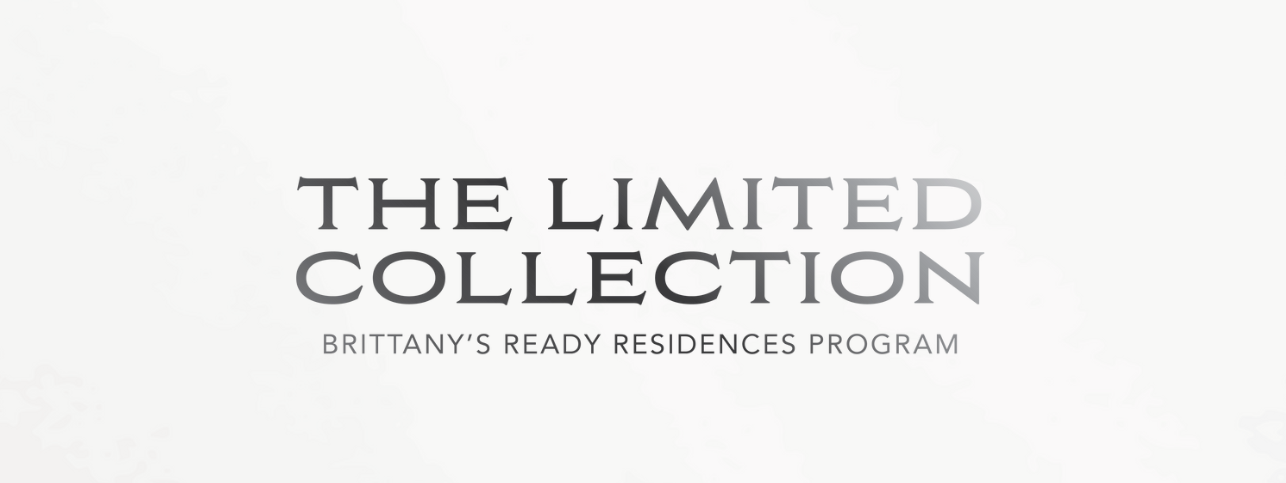BLOGS
The Definition of a Pescatarian and Their Dietary Preferences
A pescatarian is a vegetarian who also eats fish and other seafood. There are several reasons why people decide to just eat fish instead of red meat and poultry.
a lot of people decide to include fish in their diets so they can get the health benefits of a plant based diets as well as the heart-healthy benefits of fish. And some people might be attempting to reduce their diet’s negative environmental effects. It can just be a matter of taste for some people.
What is Pescatarian?
To put it simply, a pescatarian is someone who prefers fish and other seafood than red meat and poultry.
“Pescatarian,” which is often written “pescetarian,” was first used in the early 1990s and is a mix of the Italian word for fish, “pesce,” and the word “vegetarian.” The pescatarian diet is referred to as “pesco-vegetarian” in scientific literature and is included in the category of vegetarianism.
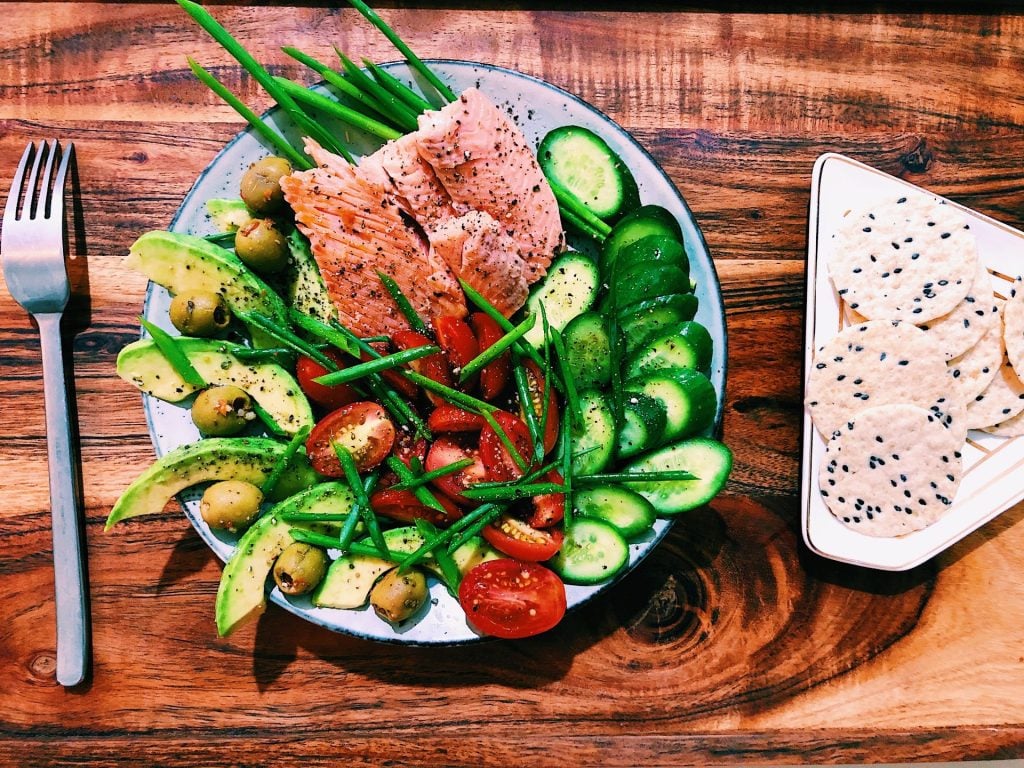
A pescatarian is someone who is in a vegetarian diet but also consumes fish and other seafood, according to that definition. Whole grains, nuts, legumes, fruits, vegetables, and healthy fats make up the majority of this predominantly plant-based diet, with seafood serving as a significant source of protein. Dairy and eggs are also very popular among pescatarians.
Naturally, a pescatarian diet can differ substantially from a vegetarian one. It is possible to have a vegetarian diet that is high in processed grains, junk food, and fish sticks rather than switching to a healthier diet centered on whole foods.
What Do Pescatarian Eats?
Pescatarians do eat:
Listed below are some suggestions for sources of fish that a person on a pescatarian diet can eat:
- Canned sardines
- Canned salmon
- Canned tuna
- Fsh sticks
- Frozen salmon, trout, and herring
- Frozen shrimp
- Fresh fish, such as cod, salmon, pollock, catfish, and sardines
- Fresh shellfish, such as shrimp, clams, and scallops
Other foods such as:
- Whole grains and grain products
- Products derived from legumes, such as beans, lentils, tofu, and hummus
- Nut butters, peanuts, nuts and seeds
- Seeds, including hemp, chia and flaxseeds
- Dairy, including yogurt, milk and cheese
- Fruits
- Vegetables
- Fish and seafood
- Eggs and dairy
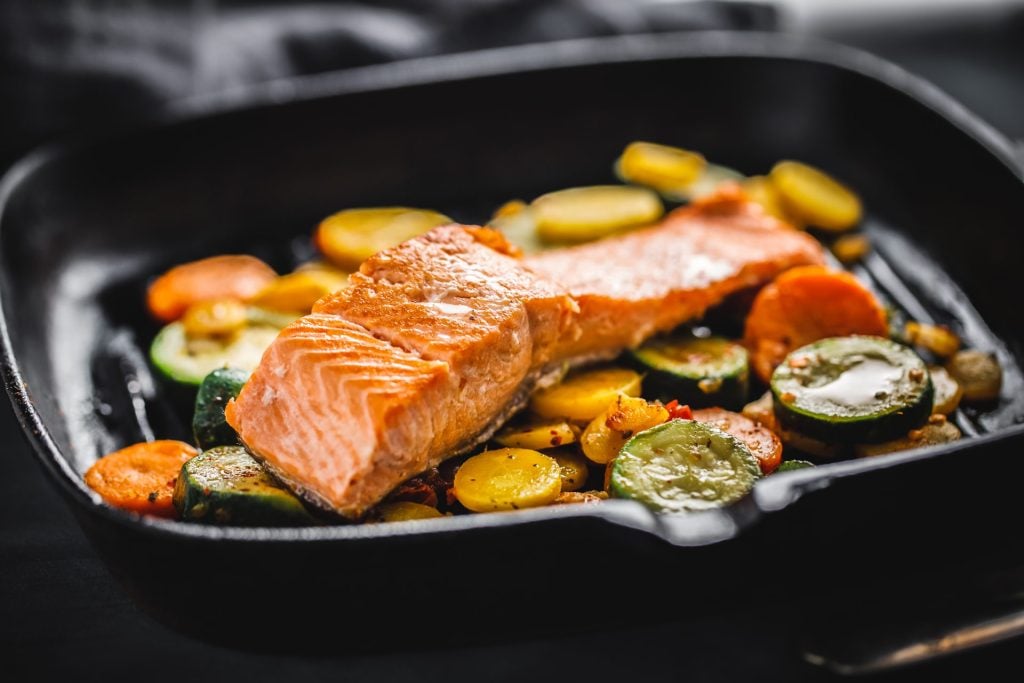
Pescatarians don’t eat:
- Beef
- Chicken
- Pork
- Lamb
- Turkey
- Wild game
The pescatarian diet consists primarily of minimally processed plant foods, along with seafood, eggs and dairy products.
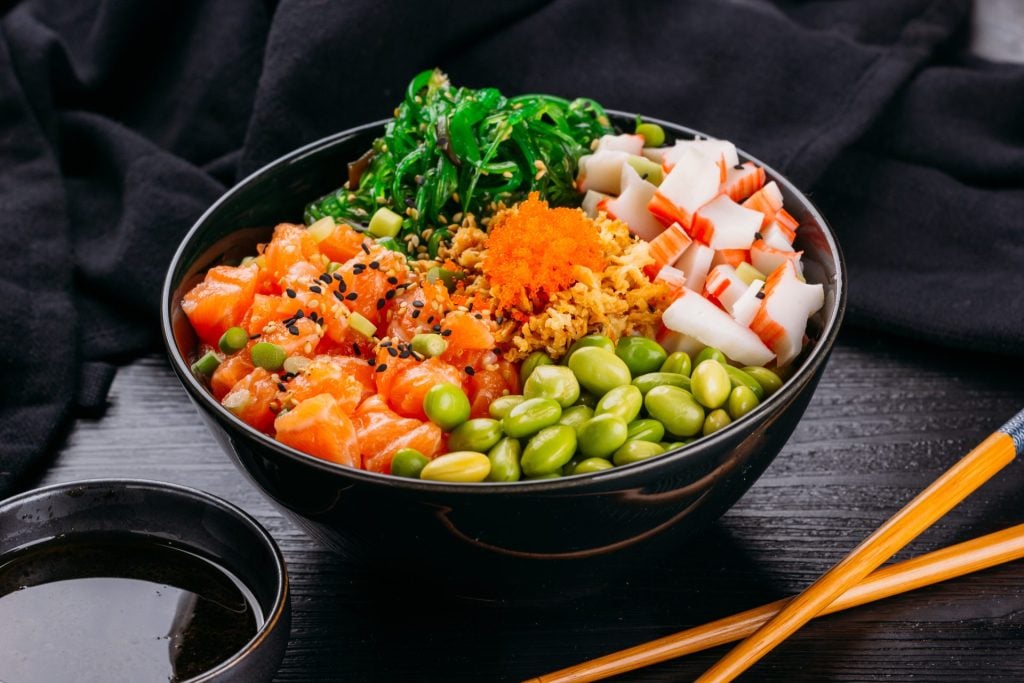
Even though a vegetarian may be able to receive all the nutrients they require from the food they eat, any diet that severely restricts a variety of foods may result in an inadequate intake of one or more nutrients.
Health Benefits of Adding Fish to a Vegetarian Diet
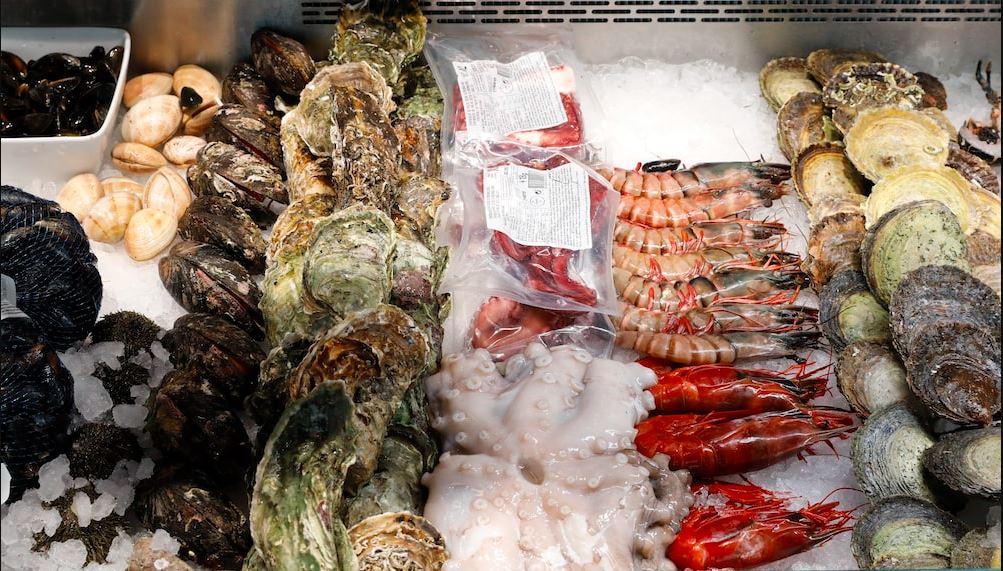
Adding fish to a vegetarian diet has a lot of advantages and health benefits of a pescatarian diet. Many individuals worry that fully avoiding animal products or animal flesh would result in a poor intake of some important nutrients.
It may be more difficult to consume adequate protein, zinc, calcium, and the vitamin B12 on a vegan diet. However, include seafood in your diet, such as fish, crabs, and mollusks, can help you obtain the nourishment you need.
Why do people choose pescatarian diet?
Health Benefits
A plant based diets has numerous known advantages and health benefits, including a reduced risk of obesity, a lower risk of heart disease, and chronic diseases like diabetes.
Many of those preventative advantages and health benefits of a pescatarian diet can be obtained from it. And according to one study of a pescatarian diet, vegetarian women gain 2.5 less pounds (1.1 kg) each year than vegetarian women who eat meat.
People who changed their diets to be more plant-based lost the least amount of weight, demonstrating that cutting back on animal products may be healthy for you regardless of your existing eating habits.
Environmental Concerns
Raising a livestock has a high environmental cost. And according to the United Nations, 15% of all carbon emissions that are caused by humans are attributable to cattle production.
In contrast, the carbon footprint of producing fish and seafood is smaller than that of any sort of animal meat or cheese.
Ethical Reasons
People who wish to adopt a vegetarian diet often do so for ethical reasons. Pescatarians may also use it as a primary justification.
People refrain from eating meat for a variety of ethical grounds, including:
- Poor labor conditions: They reject funding factory farms that provide subpar working conditions for its employees.
- Inhumane factory practices: They reject funding factory farms that treat livestock inhumanely.
- Humanitarian reasons: When there is so much hunger in the world, they view the production of grain for animal feed as an unfair use of resources and land.
- Opposing slaughter: They do not desire to slaughter animals for sustenance.
Some of these ethical issues are addressed by avoiding eating land animals. But overfishing and aquaculture can also be an issue.
The Seafood Watch program at the Monterey Bay Aquarium is a great place to look for seafood that have been captured or raised ethically.
Seafood Is Packed With Other Nutrients
Seafood is a great source of protein and other nutrients besides omega-3 fatty acids.
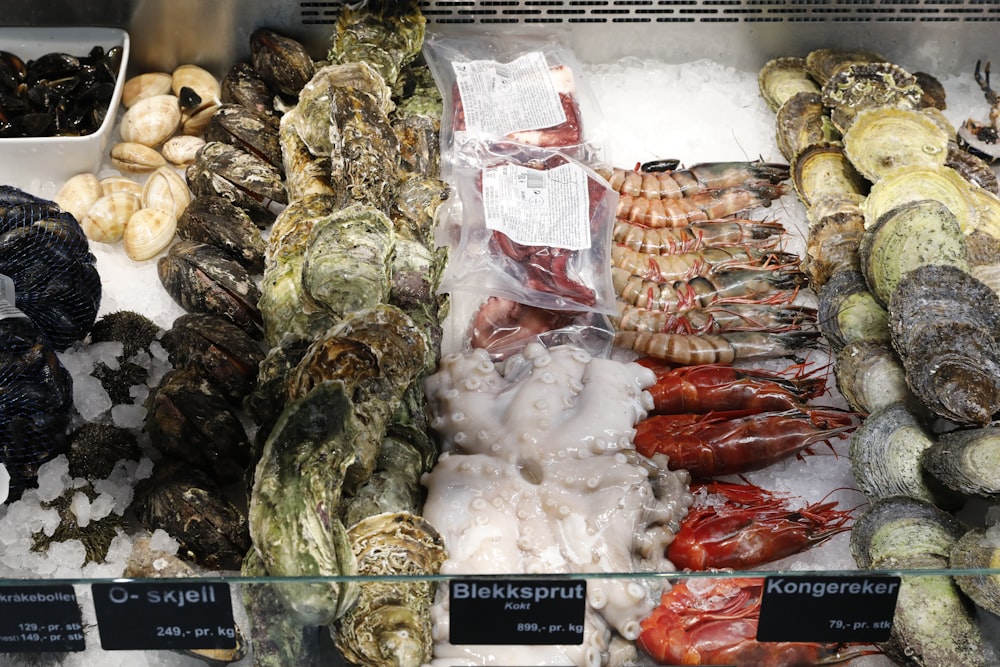
Oysters, are incredibly rich in selenium, zinc, and vitamin B12. Mussels are also quite high in selenium, vitamin B12, manganese, and the other B vitamins. And white fish such as Cod and flounder are examples of fish that are low in omega-3 fatty acids but high in highly lean protein.
Get More Omega-3s
The finest source of omega-3 fatty acids is fish. There are several plant-based foods that contain alpha-linolenic acid (ALA), a form of omega-3 fat. These include nuts and seed such as walnuts and flaxseeds. However, the body does not readily convert this kind of ALA to eicosapentaenoic acid (EPA) and docosahexaenoic acid (DHA).
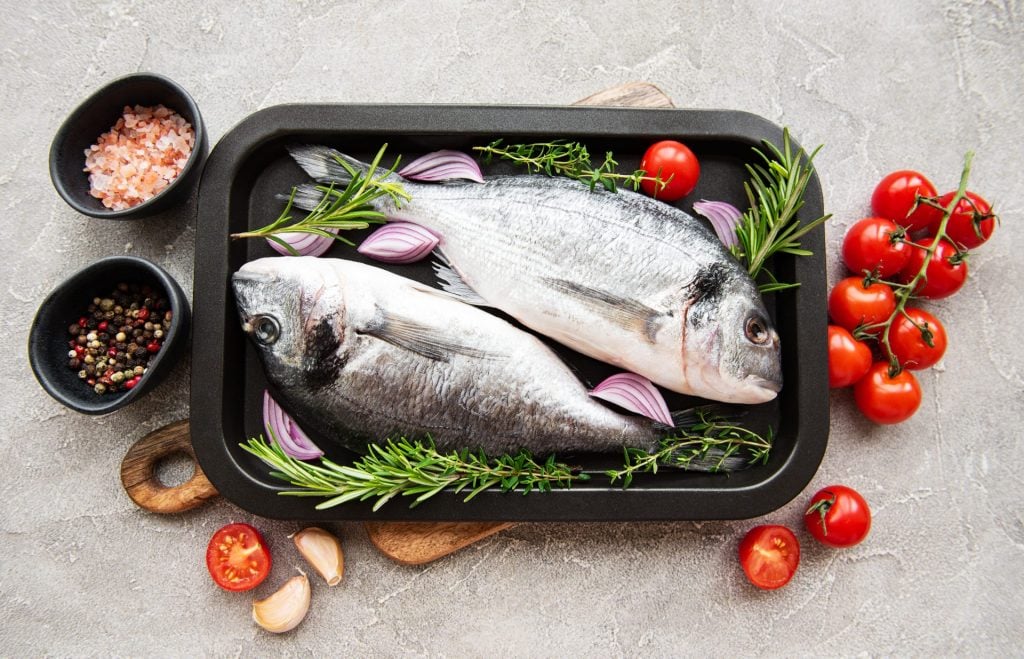
In addition to improving heart health, DHA and EPA also improve mood and brain function. On the other hand, oily fish like salmon and sardines has EPA and DHA in it.
You’ll Have Extra Options
Vegetarianism can occasionally be restrictive. When dining out, you frequently have a less-than-healthy alternative because the major “veggie” options are things like cheesy pasta.
Being a pescatarian will provide you more options if your eating choices are at least partially influenced by your health.
Additionally, fish is typically a good choice, especially when baked, grilled, or sautéed rather than deep-fried.
Drawbacks of a Pescatarian Diet
Like many other things in life, sometimes too much of a good thing may be detrimental. Seafood and fish are also included. For instance, several fish species, such as tilefish, swordfish, and tuna, have moderate to high mercury levels.
Heavy metal mercury can be unhealthy, especially for infants and young children. Because of this, the government advises that women who are childbearing age, pregnant, or nursing eat fish that is mostly low in mercury. If you become a pescatarian, think about consuming fish with reduced mercury levels, such as lake trout, salmon, mackerel, herring, and sardines.
Health is Wealth

Following a pescatarian diet can be quite healthy. It enables you to avoid some of the moral and environmental problems associated with meat-based diets. And compared to a typical vegetarian diet, this manner of eating offers more flexibility and some additional nutrition. Aside form this, your environment greatly affects your health. Amore at Portofino evokes the rustic elegance of Tuscany. The Philippines Property Awards named it the Best Housing Development in Manila and the Best Housing Development in the Philippines in 2015, so you can rest assured that purchasing a luxury home and lot in this beautiful development is a wise financial decision.

